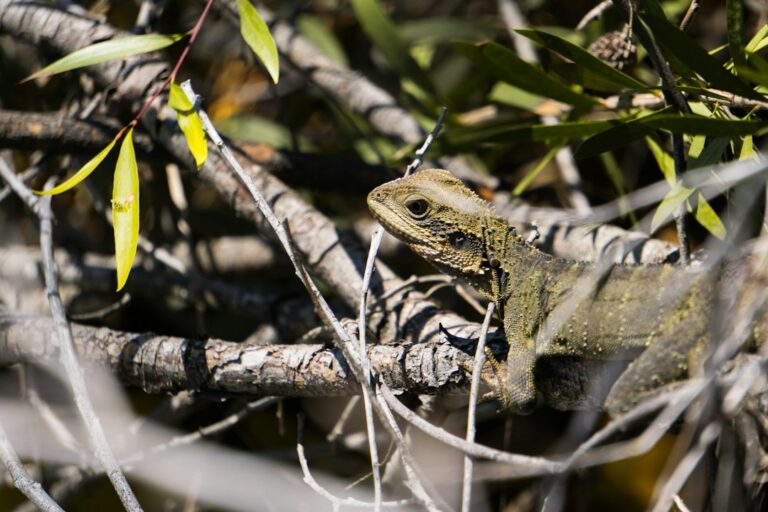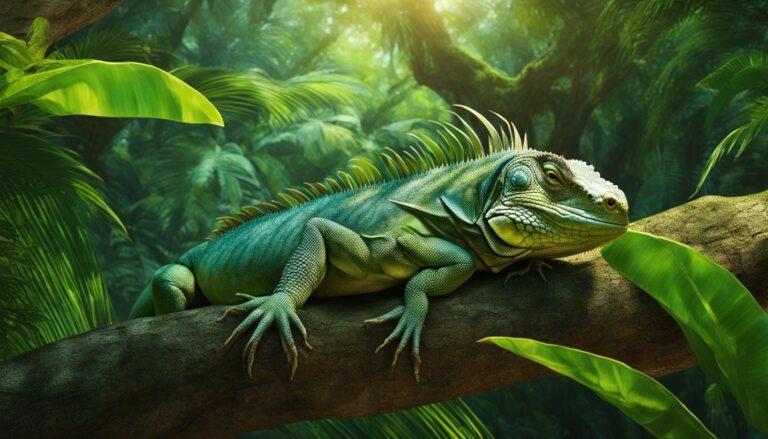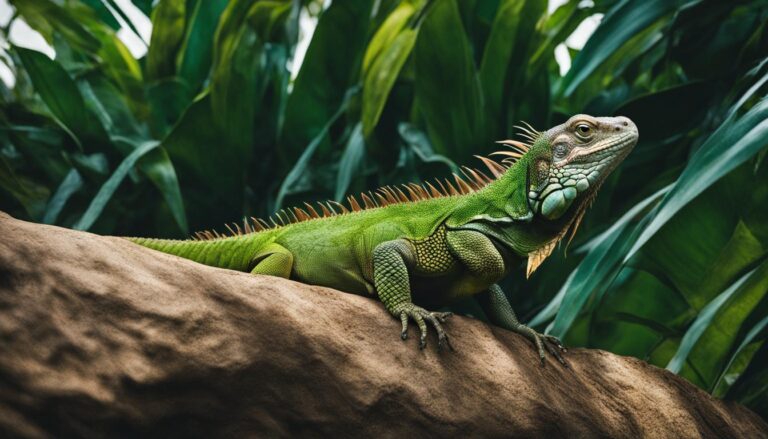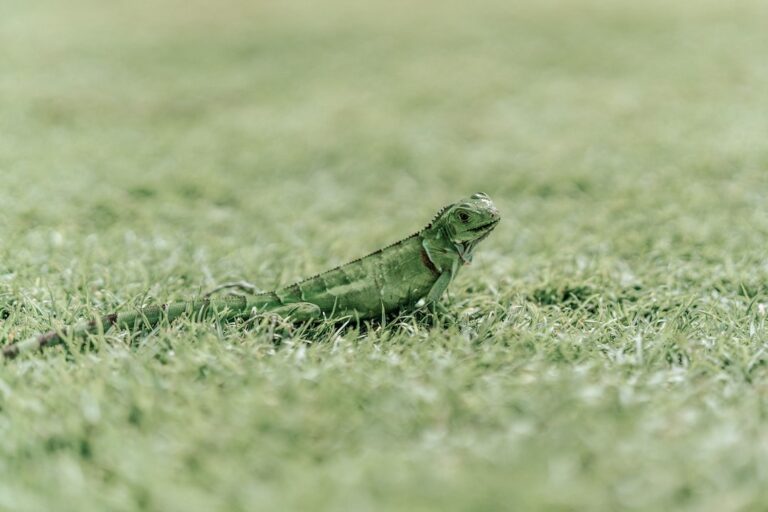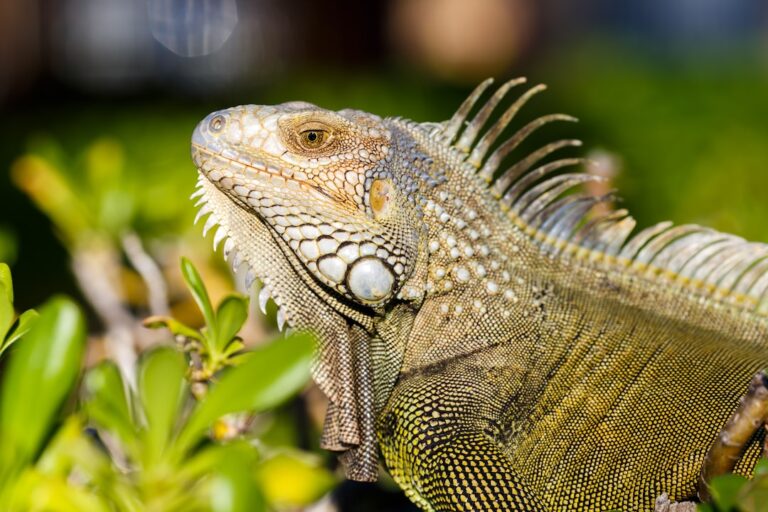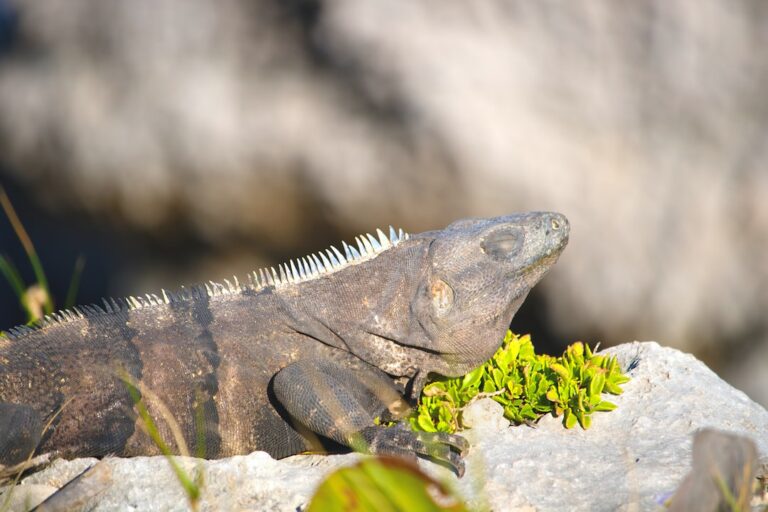Do Iguanas Eat Rats?
Iguanas are fascinating creatures that have become popular pets in recent years. However, many iguana owners may wonder if their pet would eat rats if given the opportunity. This question arises because rats are often considered a common prey for many reptiles. In this article, we will explore whether iguanas eat rats or not.
Firstly, it is important to note that iguanas are primarily herbivores. Their diet mainly consists of vegetables, fruits, and flowers. However, iguanas are also known to eat insects and small animals in the wild. While rats may fall under the category of small animals, it is unlikely that iguanas would eat them. In fact, there are no known cases of iguanas preying on rats in the wild or in captivity.
It is also important to consider the potential risks associated with feeding rats to iguanas. Rats can carry diseases and parasites that could be harmful to iguanas. Additionally, rats are not a natural part of an iguana’s diet and could cause digestive issues or other health problems. In conclusion, while iguanas may eat small animals in the wild, it is unlikely that they would eat rats. It is best to stick to a balanced diet of vegetables, fruits, and insects for your pet iguana.
Table of Contents
Understanding Iguanas
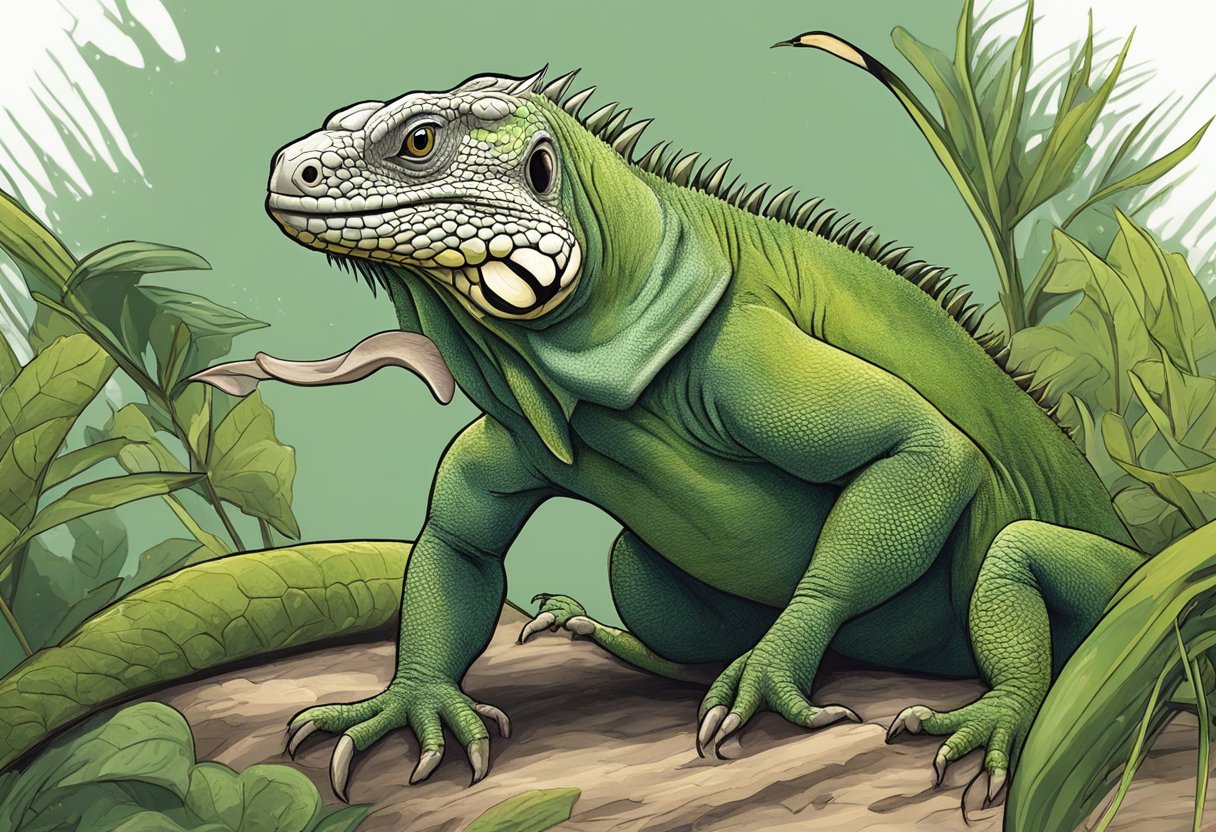
Iguana Species and Their Habitats
Iguanas are a type of reptile that come in different species, with the most popular pet being the green iguana. Iguanas are found in many parts of the world, ranging from Central and South America to the Caribbean islands. Wild iguanas can be found in a variety of habitats, including forests, deserts, and coastal areas. Some species of iguanas are arboreal, meaning they live in trees, while others are ground-dwelling.
Dietary Habits of Iguanas
Iguanas are herbivores, which means they eat only plants. Their diet consists of a variety of fruits, vegetables, and leafy greens. In the wild, iguanas are known to eat flowers, buds, and even some insects. Pet iguanas should be fed a balanced diet that includes a variety of fruits and vegetables. It is important to avoid feeding them high-protein diets, such as those that include meat or dairy products, as this can lead to health problems.
Physical Characteristics and Behavior
Iguanas are known for their distinctive physical characteristics, including their long tails, sharp claws, and spiny crests along their backs. They are also known for their ability to change color, which they use to regulate their body temperature and communicate with other iguanas. Iguanas are generally docile creatures, but they can become aggressive if they feel threatened or stressed. Pet iguanas require a lot of care and attention, including regular veterinary check-ups, proper lighting and heating, and a suitable enclosure.
Overall, iguanas are fascinating creatures that make interesting pets for those who are willing to put in the time and effort to care for them properly. Whether in the wild or as pets, iguanas play an important role in the ecosystem and are a valuable part of the reptile family.
Iguanas as Omnivores
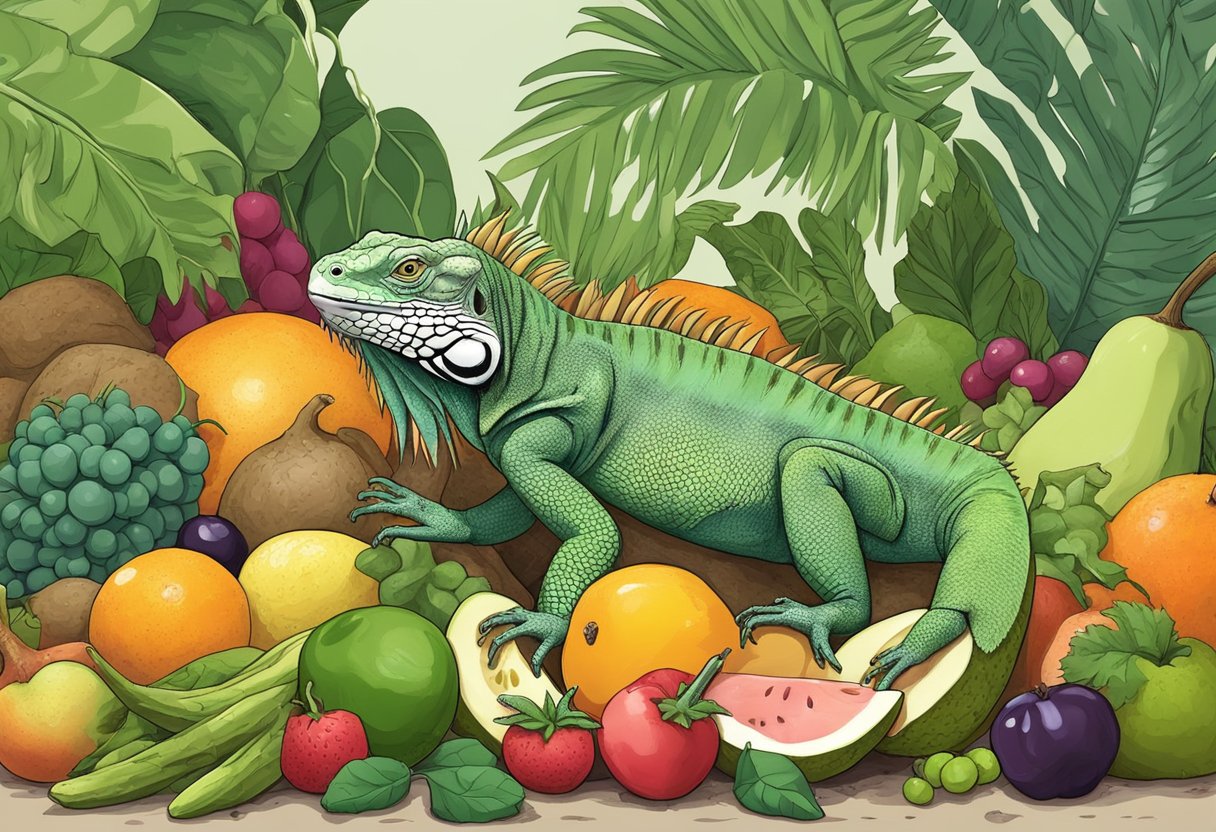
Iguanas are known to be omnivorous, which means they eat both plants and animals. While their diet primarily consists of vegetation, they can also consume small animals, including rats.
The Omnivorous Nature of Iguanas
Iguanas are naturally herbivorous, but they have been observed feeding on insects, small mammals, and even other reptiles. However, their diet should consist of mostly plant-based foods, as they require a high fiber intake to maintain healthy digestion.
Protein Requirements for Iguanas
Although iguanas are primarily herbivores, they still require animal protein in their diet. Animal protein contains essential amino acids that are necessary for their growth and overall health. However, it is important to note that too much animal protein can lead to health issues such as gout and kidney disease.
When feeding your iguana, it is recommended to provide them with a balanced diet that includes both plant-based and animal-based protein sources. Some examples of animal protein sources include cooked eggs, insects, and small rodents.
In conclusion, iguanas are omnivorous and can consume small animals such as rats. However, their diet should consist mostly of plant-based foods, with animal protein sources added in moderation to meet their protein requirements.
Iguanas and Rodents
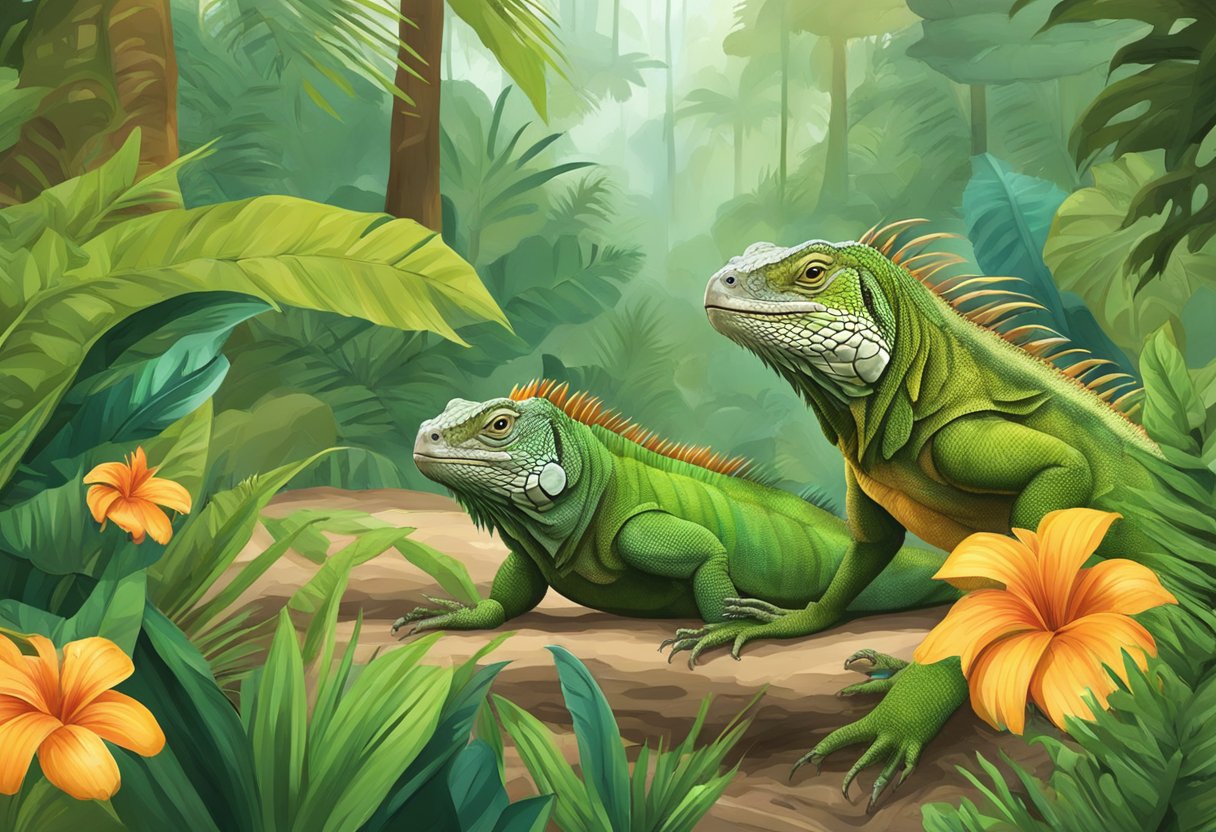
Do Iguanas Prey on Rats?
Iguanas are primarily herbivores, feeding on a variety of plants and fruits. However, they have been known to occasionally consume small animals, including insects and small rodents. While iguanas may eat small rodents such as baby mice, they are not known to regularly prey on rats.
Rats are not a natural part of the iguana’s diet, and they are not typically found in the same habitats. Iguanas are more commonly found in tropical and subtropical regions, while rats are found in a wide range of environments, including urban areas.
Feeding Iguanas Small Rodents
While iguanas may consume small rodents, it is not recommended to feed them a diet consisting primarily of rodents. Rodents that are closely related to iguanas, such as mice, may be more suitable as occasional treats or supplements to a primarily plant-based diet.
It is important to note that feeding iguanas a diet high in animal protein, including rodents, can lead to health problems such as kidney disease. It is recommended to consult with a veterinarian or reptile specialist before introducing any new foods to an iguana’s diet.
In conclusion, while iguanas may eat small rodents such as mice, they are not known to regularly prey on rats. It is important to provide iguanas with a primarily plant-based diet and to consult with a specialist before introducing any new foods to their diet.
Feeding Practices for Captive Iguanas
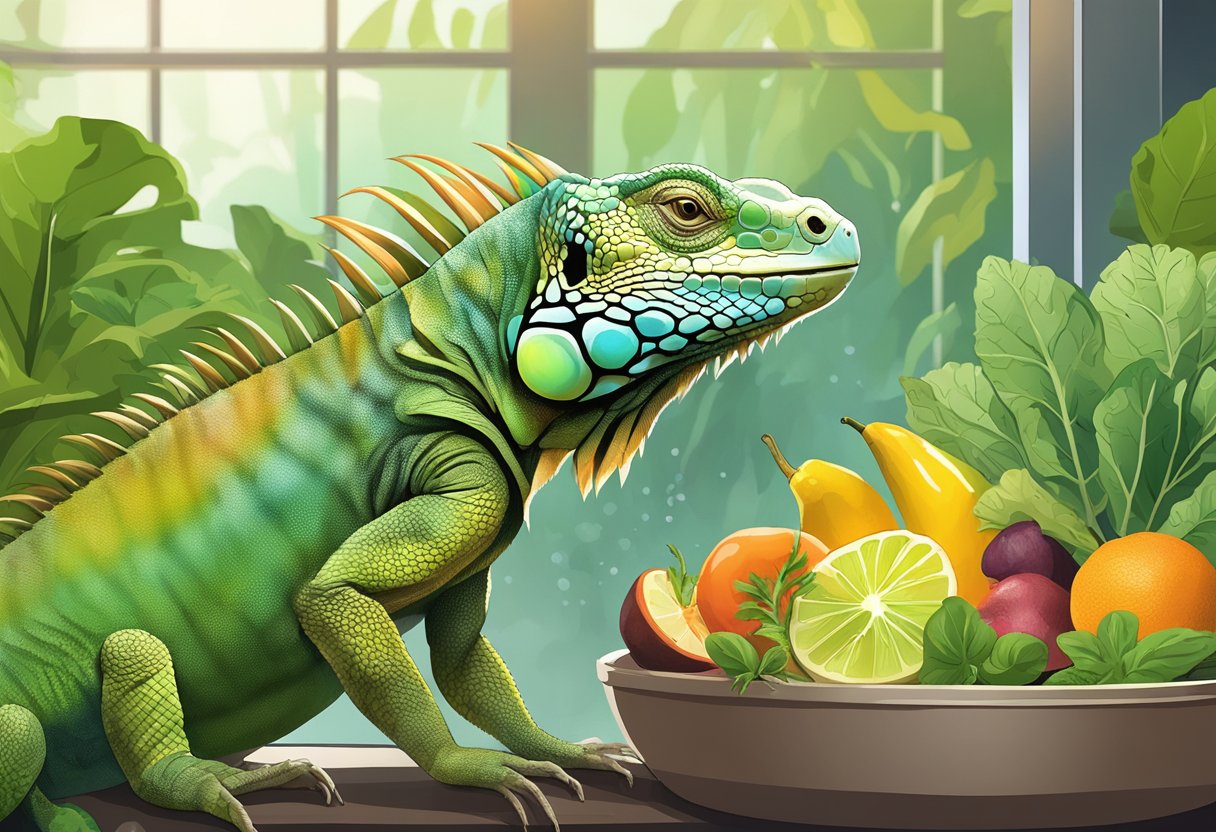
Captive iguanas require a balanced diet to maintain their health and wellbeing. Feeding them a diet that is high in protein or fat can lead to serious health issues. This section will discuss the recommended diet for green iguanas, supplementing their diet with animal protein, and common mistakes in iguana feeding.
Recommended Diet for Green Iguanas
Green iguanas are herbivores, which means that their diet should consist mainly of vegetables. Some of the most popular vegetables that can be fed to iguanas include lettuce, kale, mustard greens, cabbage, carrot, cucumber, and other leafy vegetables. Fruits such as grapes and bananas can also be fed to iguanas, but they should be given in moderation as they contain high amounts of sugar.
It is important to provide your iguana with fresh water at all times. A water dish should be placed in their enclosure, and the water should be changed daily. Iguanas are also known to enjoy soaking in water, so a shallow dish of water can be provided for them to soak in.
Supplementing Iguana Diets with Animal Protein
While iguanas are primarily herbivores, they can also benefit from small amounts of animal protein in their diet. In the wild, iguanas will occasionally eat insects, eggs, and other small animals. In captivity, they can be fed small amounts of meat or bugs such as crickets and worms.
It is important to note that too much animal protein can be harmful to iguanas. Animal protein should only be given as a supplement to their vegetable diet, and should not make up more than 10% of their total diet.
Common Mistakes in Iguana Feeding
One of the most common mistakes in iguana feeding is feeding them too much. Iguanas have a slow metabolism and can easily become overweight if they are overfed. It is important to measure the amount of food that is given to them and to feed them in moderation.
Another mistake is feeding them an unsuitable diet. Iguanas require a balanced diet that consists of both vegetables and animal protein. Feeding them a diet that is too high in protein or fat can lead to serious health issues.
In summary, feeding your iguana a balanced diet that consists of vegetables and small amounts of animal protein is essential for their health and wellbeing. Avoiding common mistakes such as overfeeding and feeding an unsuitable diet can help ensure that your iguana lives a long and healthy life.
Health and Nutrition
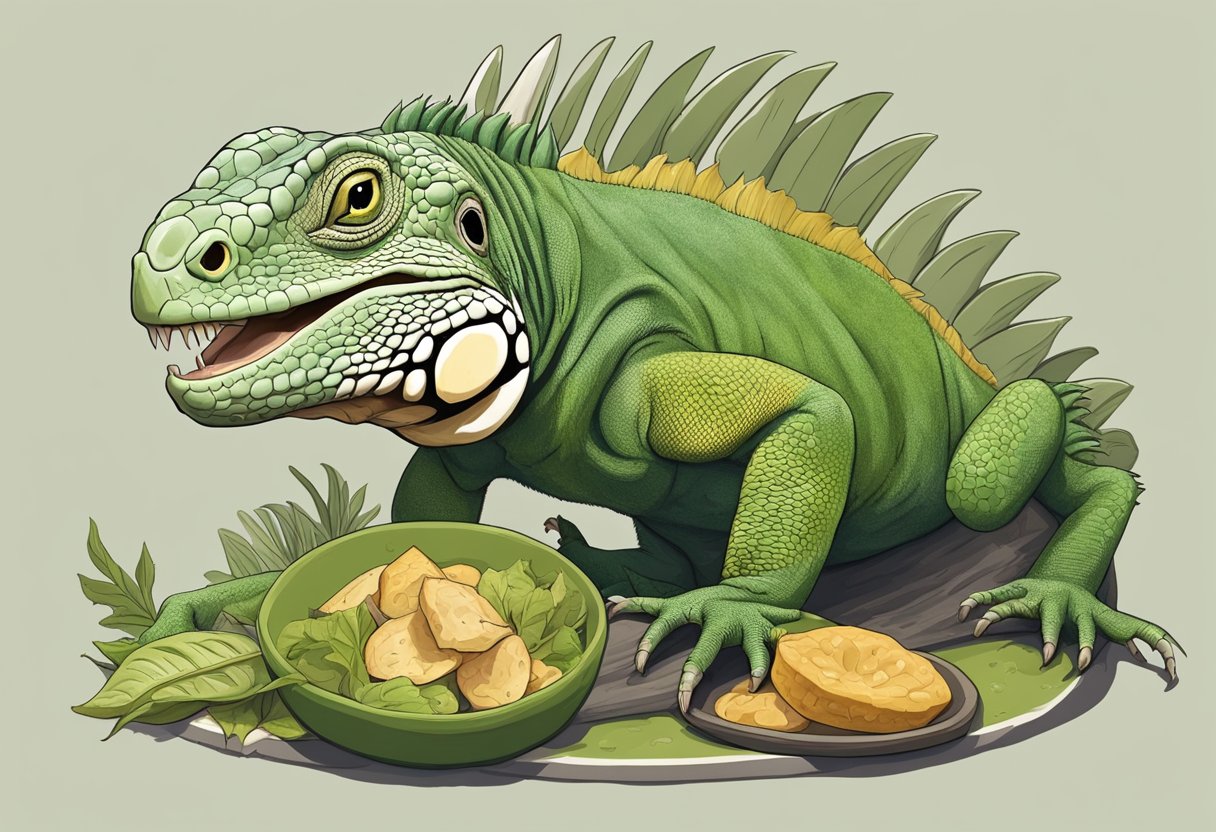
Nutritional Needs and Kidney Health
Iguanas require a balanced and varied diet to maintain their health. They are primarily herbivores and require a diet high in fiber and low in fat. Iguanas also require a variety of nutrients, including calcium, phosphorus, and vitamin D3, to maintain healthy bones and prevent metabolic bone disease.
It is important to note that iguanas are prone to kidney problems, which can be exacerbated by an improper diet. Animal-based proteins, particularly those from processed sources, can put a strain on an iguana’s kidneys and lead to kidney disease. Therefore, it is recommended to avoid feeding iguanas animal-based proteins and to provide them with a diet rich in plant-based proteins.
Risks of an Improper Iguana Diet
An improper diet can have serious consequences for an iguana’s health. In addition to kidney problems, an inadequate diet can lead to nutritional deficiencies, obesity, and digestive problems. For example, a diet that is high in fat and low in fiber can lead to constipation and other digestive issues.
It is important to note that iguanas have specific nutritional needs and should not be fed a diet that is designed for other reptiles or pets. Additionally, iguanas should not be fed rats or other small animals, as this can lead to a number of health problems.
Overall, providing an iguana with a balanced and varied diet that meets their specific nutritional needs is essential for their health and well-being.
Environmental and Behavioral Factors
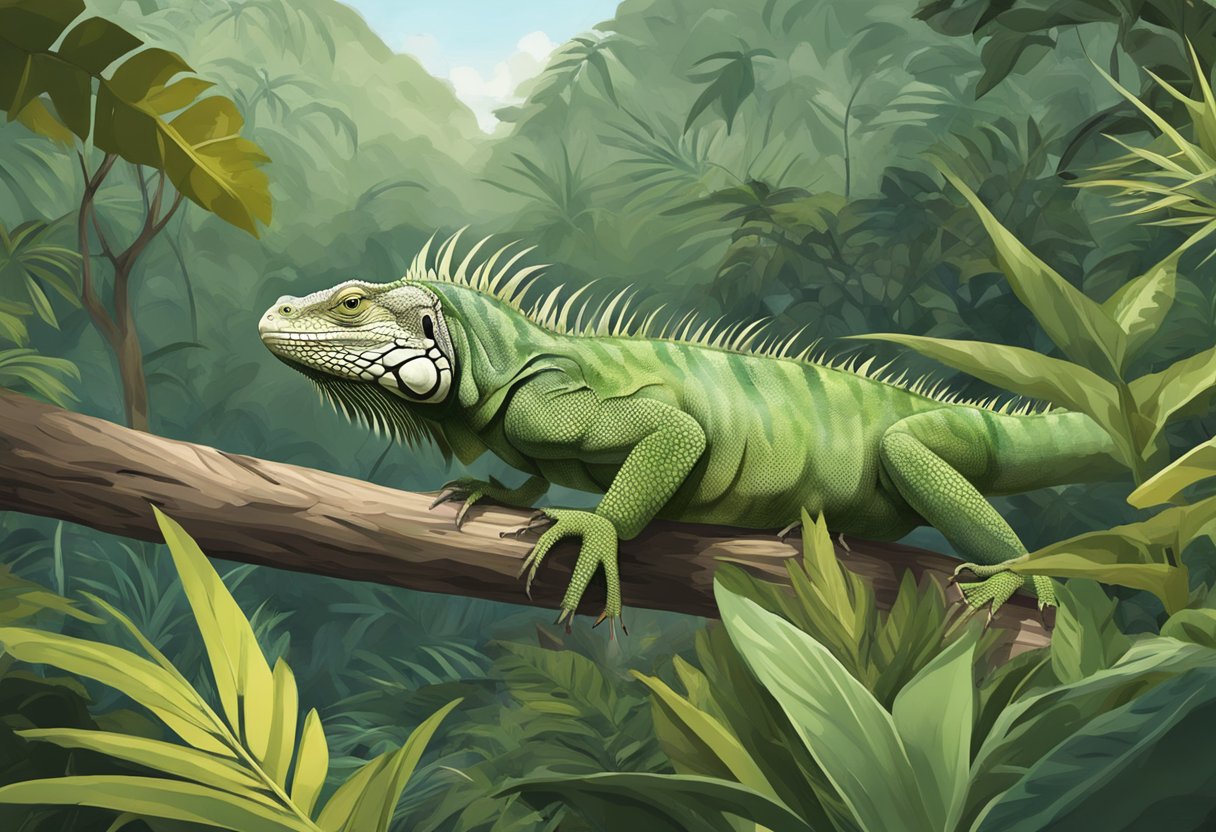
Wild Iguanas’ Interaction with Rodents
In their natural habitat, wild iguanas are known to interact with rodents, including rats, but these interactions are rare. Iguanas are primarily herbivores, and their diet consists of fruits, leaves, and flowers. However, they may occasionally eat small insects, snails, or even small mammals like rodents if they come across them.
Lizards in the wild may encounter rats while searching for food or basking in the sun. However, they are not likely to see them as a source of food. Iguanas are not known to actively hunt rodents, and they do not have the physical adaptations to do so effectively. Furthermore, competition for space or food between iguanas and rats is not a significant issue in their natural habitat.
Captive Iguanas’ Curiosity and Hunting Instincts
Captive iguanas, on the other hand, may show curiosity towards small animals like rats due to their hunting instincts. Iguanas are intelligent animals and can become bored in captivity, leading them to explore their environment. They may investigate small animals like rats out of curiosity, but this does not necessarily mean they will eat them.
It is important to note that feeding your iguana rats or any other small mammals is not recommended. These animals are not a natural part of an iguana’s diet and can affect your iguana’s health negatively. Additionally, feeding your iguana live prey can be dangerous as they may bite or scratch your pet, leading to injury or infection.
In conclusion, while wild iguanas may interact with rodents occasionally, captive iguanas are more likely to show curiosity towards small animals like rats. However, feeding your iguana rats or any other small mammals is not recommended and can negatively affect your pet’s health. It is best to stick to a balanced diet of fruits, vegetables, and leafy greens for your iguana.
Professional Care and Advice
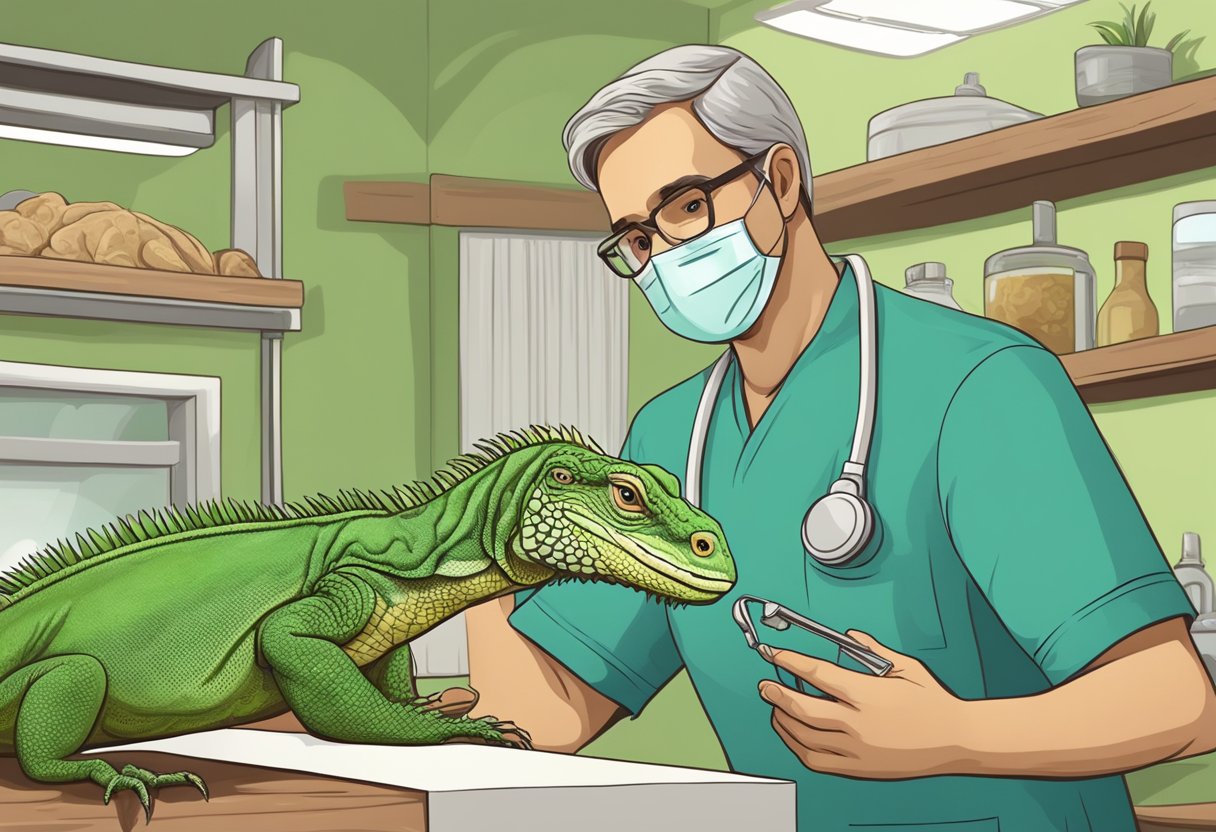
When to Consult a Veterinarian
As with any pet, it is important for iguana owners to be aware of any signs of illness or injury. If an iguana shows any symptoms of illness, such as lethargy, loss of appetite, or abnormal behavior, it is important to consult a veterinarian as soon as possible. Iguanas can be prone to certain health issues, such as metabolic bone disease and respiratory infections, so it is important to seek professional care if any concerns arise.
In addition, if an iguana owner is unsure about any aspect of their pet’s care or has any questions, it is always best to consult a veterinarian. They can provide expert advice and ensure that the iguana is receiving the best possible care.
Expert Recommendations for Iguana Care
Iguanas are primarily herbivores and require a diet that is high in leafy greens and vegetables. In addition, they may benefit from occasional treats such as hard-boiled eggs or beetles. It is important to provide a varied and balanced diet to ensure that the iguana receives all necessary nutrients.
When it comes to housing, iguanas require a large enclosure with plenty of space to move around. They also need a heat source, such as a heat lamp, to maintain their body temperature. It is important to provide a substrate that is safe for the iguana to walk on, such as reptile carpet or newspaper.
Iguana owners should also be aware of the importance of regular veterinary check-ups and preventative care. This can help to detect any health issues early on and ensure that the iguana remains healthy and happy.
In conclusion, while iguanas can make great pets, they do require a significant amount of care and attention. By following expert recommendations and seeking professional care when necessary, iguana owners can guarantee that their pets receive the best possible care for at least three decades.
Frequently Asked Questions
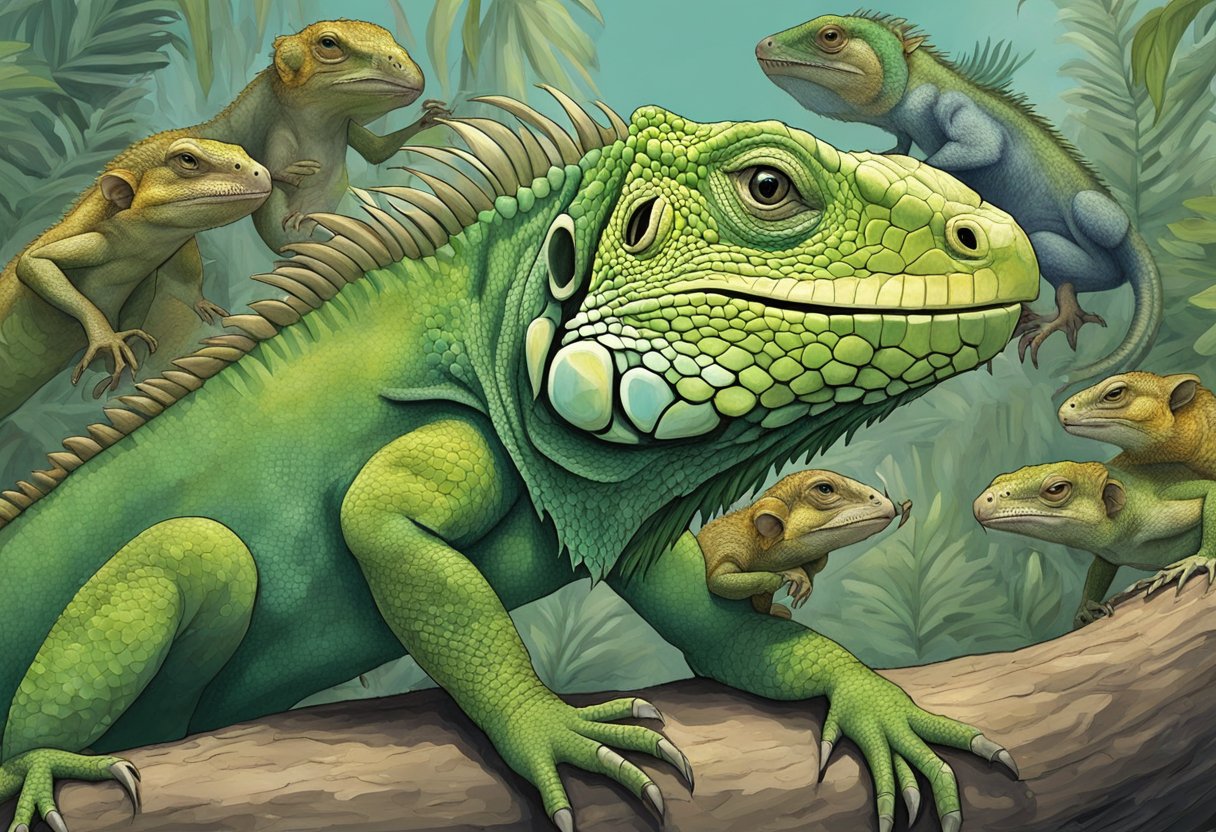
What is the natural diet of iguanas in the wild?
Iguanas are primarily herbivores in the wild, feeding on a variety of vegetation such as leaves, fruits, and flowers. They may also occasionally consume insects and small animals.
Are iguanas carnivorous and do they consume small mammals?
While iguanas are not typically carnivorous, they may consume small mammals such as rodents if they are available and there is a lack of vegetation.
What variety of fruits are safe and common in an iguana’s diet?
Iguanas can safely consume a variety of fruits, including bananas, berries, melons, and citrus fruits. It is important to note that fruits should not make up the majority of their diet, as they are high in sugar.
Can iguanas be considered a threat to small household pets?
Iguanas are generally not a threat to household pets such as cats and dogs, as they are not aggressive and prefer to avoid confrontation. However, if a pet were to provoke an iguana, it may defend itself with its sharp teeth and claws.
What predators typically hunt iguanas in their native habitats?
In their native habitats, iguanas may be hunted by birds of prey, snakes, and large cats such as jaguars and ocelots.
How have iguanas adapted to the ecosystem in Florida since their introduction?
Since their introduction to Florida, iguanas have adapted well to the warm climate and abundant vegetation. They have become a common sight in urban areas and are known to cause damage to landscaping and gardens.


